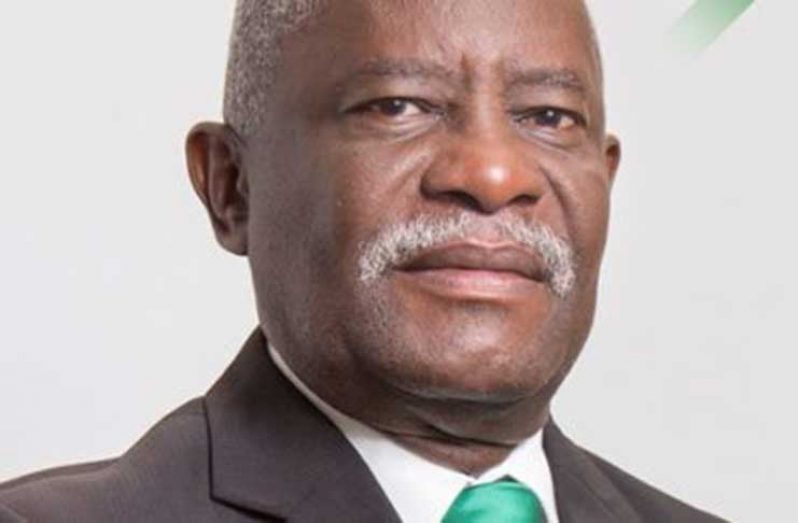…from a total of 923 foreign nationals
ONLY 14 Haitians were granted citizenship here in Guyana since 2015, Minister of Citizenship, Winston Felix, disclosed on Wednesday.
He explained that from 2015 to July 2019, 923 immigrants from more than 42 countries were granted citizenship in Guyana, among them 14 Haitians. In recent months, reports have suggested that Haitians are “flooding” Guyana but the records show the contrary. Minister Felix, while fielding questions from reporters, disclosed that in 2015, 141 immigrants from 35 countries were granted citizenship here in Guyana. From that lot, only one Haitian was granted citizenship, he keenly pointed out.
Again in 2016, only one Haitian national was granted citizenship from a total of 192 immigrants whose applications were approved. They hailed from 34 countries, Minister Felix detailed. The next year (2017), 230 foreign nationals secured citizenship from a total of 40 countries, among them seven Haitians.
But in 2018, only three Haitians were granted citizenship when compared to 252 immigrants that had their application for citizenship approved by the department. This batch of immigrants, he said, came from 42 countries. As of July, 2019, nationals from 30 countries totalling 108 were granted citizenship for this year, among them two Haitians, Minister Felix further detailed.
Records show that for the first seven months of 2019, 8476 Haitians arrived in Guyana via the Cheddi Jagan International Airport (CJIA) but that figure was minute when compared to the large numbers of Cubans, Trinidadians, Americans, Canadians and Chinese who have entered the country. It was alleged that the Haitians were being brought to Guyana to vote in the upcoming General and Regional Elections but the Department of Citizenship was quick in dispelling the allegation.
Early August, the Department of Citizenship confirmed that between January and July, 2019, 6,925 Haitians entered Brazil via the border at Lethem, a number which corroborated government’s statements that the French-speaking nationals were capitalising on the free movement of people within the Region. Added to that, the figure effectively put to rest arguments contained in articles published by local private newspapers, including the Guyana Times and the Kaieteur News, that the CARICOM nationals were being trafficked or smuggled here. Government had noted that of the total 8,476 Haitians who entered Guyana via CJIA, during the seven-month period, 1,170 had otherwise departed.
But on Wednesday, Minister Felix again acknowledged that there remains a difficulty in monitoring the departure of Haitians especially on the Corentyne Coast and in the Rupununi.
“If you really examine what is happening on the Corentyne, you will suddenly discover that there is no where you can put your hand on anybody leaving back track because of the number of back track routes they have. Let’s just start from No. 66 Village, you can start 64, 62 and get up to Moleson Creek, there is no way you can do that,” Minister Felix said.
He said the issue remains a major problem, though several attempts were made to arrest the situation. The Minister of Citizenship noted that even before the use of cell phones, persons who were using those illegal routes were alerted ahead of the arrival of immigration and security personnel in the area.
“That is why the back track on the Corentyne Coast has not been completely shut down. One, we have jurisdictional issues on the sea, which is the first issue and so you are limited there. If you go to the Rupununi, that is worse yet, because it is over a thousand miles of borders between Guyana and Brazil,” Minister Felix further explained.
In an attempt to curb the situation, he said vulnerable communities are being combed for immigrants, in general, who are using them as transit point. He was keen on noting that the issue not only lies with Haitians but other foreign nationals.
“To deal with issues on the border now would require technology and technology alone wouldn’t do it, you have to have a reaction force…For example, if you want to detect an illegal departure, you have to use a drone, but when you have them, what will you do? So you have to get a reaction force,” he explained. He emphasised that while there are mechanisms that can be put in place to monitor the borders, funding, human resource, training and appropriate technology would be required.



.jpg)








